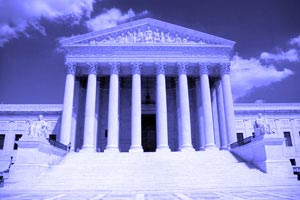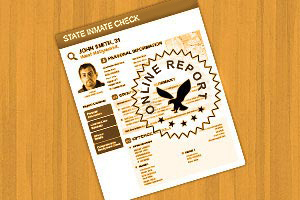Nebraska Public Records
The Nebraska State Records website provides every person with the means to gather, obtain, and examine public records. This ensures that Nebraska residents are able to access this information in accordance with the Nebraska Public Records Law. This act states that all government information and records are available to the public.
The goal of this website is to ensure all members of the general public are able to use their right to access state public records. This can be done without requiring a reason for accessing such information or providing personal information unless the requested information is confidential by law.
Nebraska State Records contains criminal records, court records, and vital records, including over 15 million transparent public records.
Are Nebraska Records Public?
Almost all Nebraska public records created or belonging to government entities in Nebraska are classified as public records. Nebraska Public Records Law defines public records as all records and documents, regardless of form, belonging to the state or its municipalities and agencies. This includes records from towns, cities, villages, counties, or districts and any government agencies, branches, departments, bureaus, commissions, councils, or committees of any foregoing.
What is Considered Public Information in Nebraska?
Records classified as public records in Nebraska include:
- Court records
- Arrest records
- Bankruptcy records
- Sex offender information
- Inmate records
- Property records
- Criminal records
- Hunting and fishing permits or licenses
The law holds for all public records and information except when a statute or law specifically states that a record cannot be made public. Nebraska Public Records Law permits members of the public, whether resident in the state or not, to inspect or obtain copies of a public record. Requesters simply have to contact the relevant custodian of the record. The law also states that data that was public in its original form will remain public even when converted to other forms such as computer files.
How Do I Find Public Records in Nebraska?
According to the Nebraska Public Records Act, when they receive a public record request, the custodian must answer as soon as practicable and without delay. A citizen may request public records from a government or public body using some easy steps. These are:
- Determine the public record and find its custodian.
The first thing to do is figure out the exact record that is required and locate the public body responsible for it and its custodian. For example, court records will be located with the clerk of court at the courthouse where the case was heard. Inmate records for Nebraska will be found by contacting the Nebraska Department of Corrections or the local law enforcement officials. Being able to describe the public record in question accurately and knowing the correct public body or custodian to contact is very important. Knowing this prevents errors and delays from unclear requests and contacting the wrong custodians.
- Contact the custodian and make the request
Public bodies and government entities are mandated to assign a custodian to handle public record requests for them. All public records requests must be addressed to them. Contact details for this office may be found online on the public body’s website, or a request may call the office and request their contact information. When the custodian’s contact details are found the request can be made. The public record request can be written or made using any agency-specific request forms. The form should be submitted to the custodian’s office either in person or by mail.
The custodian will respond in 4 business days with a denial or how to access the records and estimates for copy fees or service charges. If the requester requires copies, they may make copies for free using their equipment at the custodian’s office or a mutually agreed upon location.
Using Third-Party Sites to Find Public Records in Nebraska
City Records
Public city records may also be accessible from third-party websites. These non-government platforms come with intuitive tools that allow for expansive searches. Record seekers may either opt to use these tools to search for a specific record or multiple records. However, users will need to provide enough information to assist with the search such as:
- The name of the subject involved in the record (subject must be older than 18 or not juvenile)
- The address of the requestor
- A case number or file number (if known)
- The location of the document or person involved
- The last known or current address of the registrant
Third-party sites are not sponsored by government agencies. Because of this, record availability and results may vary.
Public Records
Public records can also be accessed from third-party websites. These third-party public records aggregate websites offer search services that are non-geographically limited, making the search result expansive and typically straightforward. However, users will need to provide enough information to assist with the search, such as:
- The name of the subject involved in the record as long as the subject is not a juvenile
- The last known or location of the record subject
Third-party public records search websites are not government-sponsored services. Therefore, the availability and accuracy of results can vary.
How Do I Lookup Public Records for Free in Nebraska?
The chances of looking up a public record for free in Nebraska depend on the type of record in question and the agency in the custody of it. For instance, most district courthouses in Nebraska have public terminals on the premises where users may lookup public records for free. However, obtaining copies of records will usually cost the requester some form of fee. Another way to view a public record for free would be to request to view the record physically at the custodian’s office. Some government agencies have online databases where records may be viewed online for free. Nebraska’s Department of correction and State Patrol have an inmate search and sex offender registry. These two databases allow users to look up inmate and sex offender records online for free. In conclusion, the most reliable ways to lookup a public record for free are:
- To inspect them in person at their custodian’s office
- View them online on a free website
Nebraska began creating public records in 1867, and these records usually cover all 93 counties. Over the last 30 years, digitization of public records has become the standard, allowing more government and third-party websites to offer these records online with increased reliability and transparency. This allows Nebraska citizens to abide by the commitment of the United States of America to remain a fair and just society for all.




